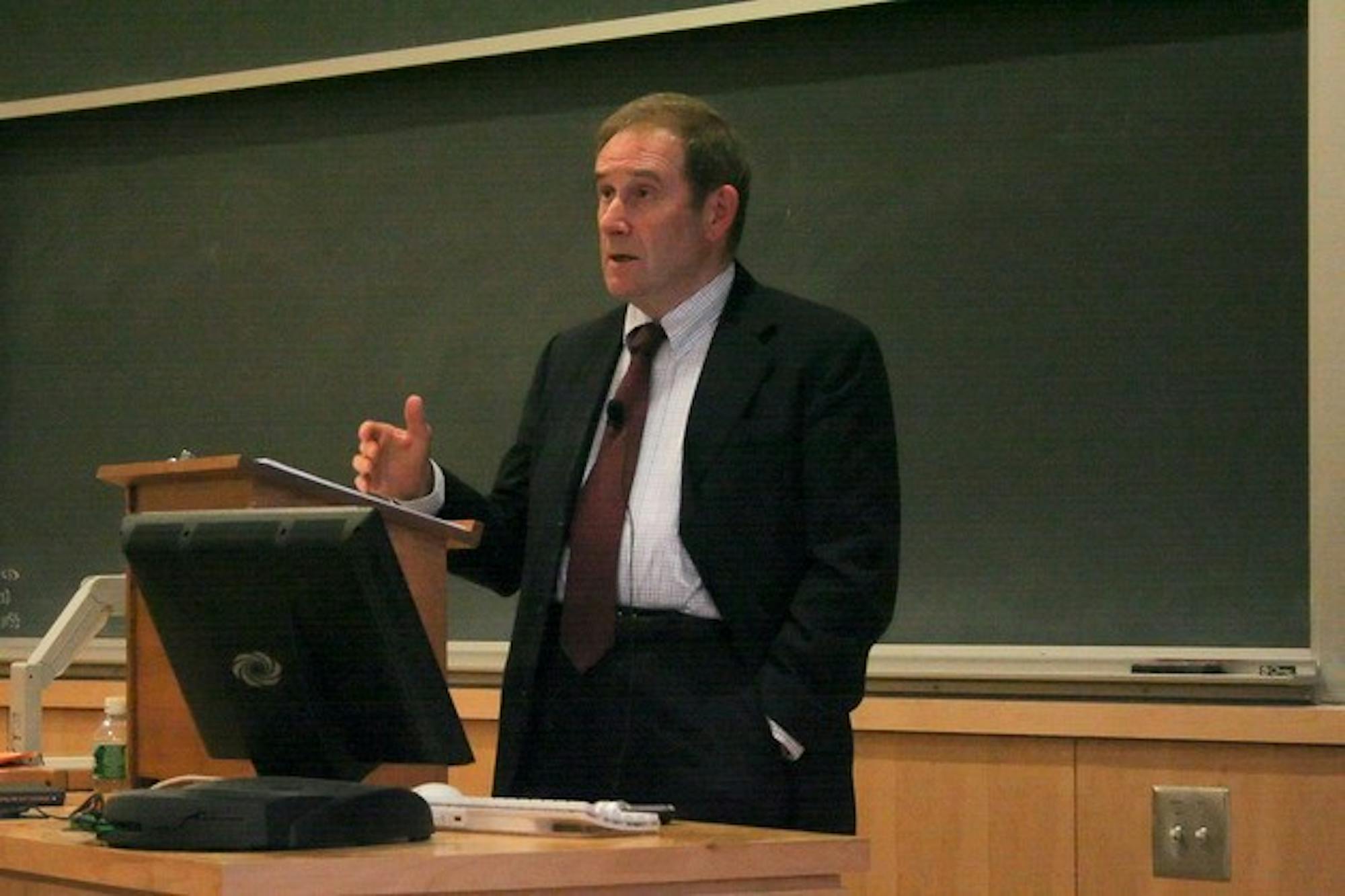Jewish populations have existed in the North African regions of current-day Yemen, Iraq and Libya since ancient times, according to Goldberg. During the 20th century, over 30,000 Jews lived in the Libyan region, he said.
"In Libya [there] emerged general categories of Jews in reference to immigrating groups," Goldberg said. "In many ways these categories were very revealing."
The largest population of Jews in Libya at this time was centered in the capital city of Tripoli, Goldberg said. The Jews who lived in the region surrounding the city were known as "Tripolitans," he said.
Goldberg also discussed other local Jewish groups including Gharyan Jews from the Libyan town of Gharyan as well as the Amrusi Jews from Amrus. Jews from these areas felt strong cultural and social bonds with their towns, according to Goldberg.
"Among immigrants, local identities certainly played some role in perceptions even though others may not have been cognizant of them," Goldberg said. "The term Jew' alone had little meaning in the villages in North Africa."
After World War II in 1948, over 80 percent of Libyan Jews moved to the newly founded state of Israel, Goldberg said.
"Did [Libyan Jews] still see themselves as Libyans?" Goldberg asked. "What about the impact of new governmental structures? It's the truth that they have been depicting themselves as Libyan Jews and this has always preceded the Israel state."
Libyan Jews who moved to Israel remained extremely tied to their Libyan roots, according to Goldberg. Goldberg presented an image to the audience that depicted Libyan Jews in Israel carrying signs indicating their village of origin as their sole means of identification.
A main coalition of Libyan Jews, called the Committee of Libyan Jewish Communities in Israel, further emphasizes how Libyan Jews choose to identify themselves geographically as separate communities, Goldberg said.
"These localities are an expression in a moment where becoming acutely aware of one's wider engagement to the world was growing." Goldberg said.
Despite the passionate cultural ties that Libyan Jews maintained while in Israel, struggles to preserve the Libyan Jewish identity persisted on a greater scale, Goldberg said.
When war broke out in Libya in the 1960s and Muammar el-Qaddafi assumed control of the country in 1969, the situation for Jews still living in Libya became "untenable," Goldberg said.
In one instance of a lack of cultural awareness under Qaddafi's regime, plans to construct a road in Tripoli destroyed a Jewish cemetery, Goldberg said. In response to discriminatory actions by the Libyan government, many Libyan Jewish leaders "took steps to make sure the memory of the dead and the past in Libya would be made elsewhere," Goldberg said.
One of the most prominent efforts to "solidify" the Libyan Jewish identity included the creation of the Libyan Jews Heritage Center in Israel, he said. The heritage center includes an education and research center as well as a museum, according to Goldberg.
"The heritage center emphasizes the ethnic experience of Libyan Jews," Goldberg said. "Part of its success is that it creates accessible generational connections between first generation Libyan Jews and future generations."
While the Libyan Jewish population in Israel remains one of the smallest of North African Jews, Libyan Jews' integration into Israeli life was successful and relatively quiet, Goldberg said.
"At first, Jews from Libya seemed to feel lost in the Israeli cultural mosaic." Goldberg said.
Despite the initial lack of awareness of the Libyan Jewish population in Israel, Goldberg said there is a sense of "rediscovery that feeds into general enthusiasm" about Libyan Jewish identity today.
"Libyan Jews are distinct but remain at the heart of the Israeli consensus," Goldberg said. "The ethnographic ledger is open [for them], and the hand continues to record their story."
Goldberg's presentation was this year's annual Brownstone Lecture, sponsored by the Jewish Studies Program and the Brownstone Family Visiting Professorship Fund in Judaic Studies.




